Japanese drama, which seems to be negative energy, is a unique funeral cure.
When you are overwhelmed by business in the company, when you are worried about your studies at school, and when you are struggling to make a living, will everyone have such a extravagant idea: if only you could do nothing!
Recently, a Japanese drama filmed the dream of thousands of salted fish. The man in the drama simply resigned and became a person who did nothing because he didn’t adapt to the life in the workplace. He also launched a service of "renting people who did nothing".
Rent out people who do nothing

There are spoilers in this article.
one
The opening scene is a seemingly ordinary scene: two men are drinking in a drink shop and chatting occasionally, but the original ordinary scene becomes interesting because of a strange name. One man calls the other man "Mr. Rent".
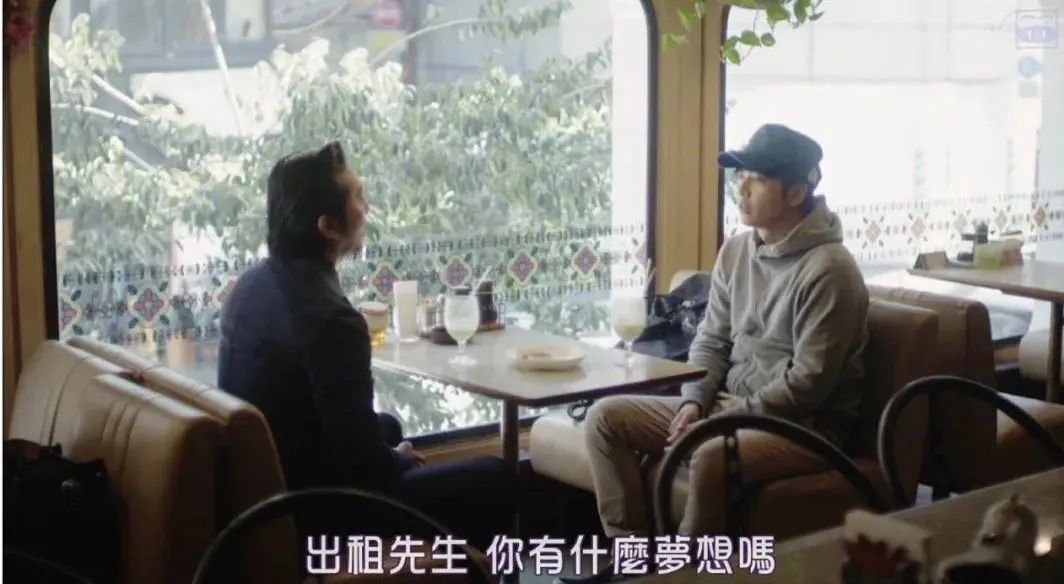
It turns out that the relationship between these two people is not a friend, but a lease relationship. Mr. Rent is named Shota, a self-proclaimed "person who does nothing". He launched a service of "renting people who do nothing" on Twitter, that is, renting himself.
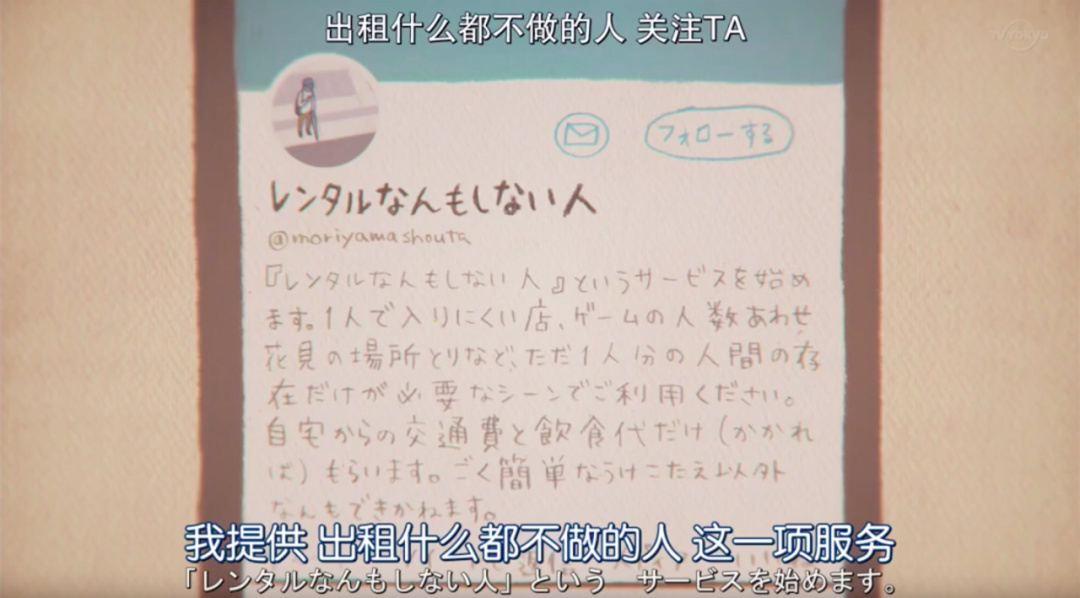
When entering a restaurant alone is embarrassing, when there are not enough people playing games, and when someone needs a seat to enjoy cherry blossoms, he can be such a person who can make up the number. The person who rents him doesn’t need to pay him extra fees, just give him transportation and meals.
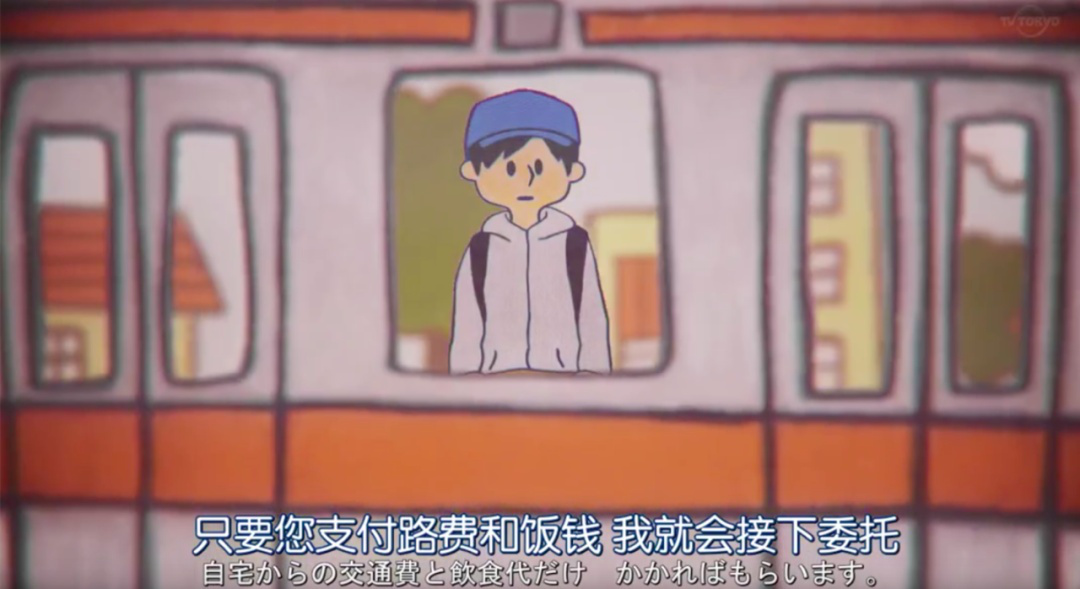
But will this strange rental service be rented? I cann’t believe there is
The man who started drinking with Shota was a customer of Shota. This man rented Shota for a very simple purpose. He wanted someone to drink ice cream soda with him, because he was usually embarrassed to order ice cream soda when his friends came.
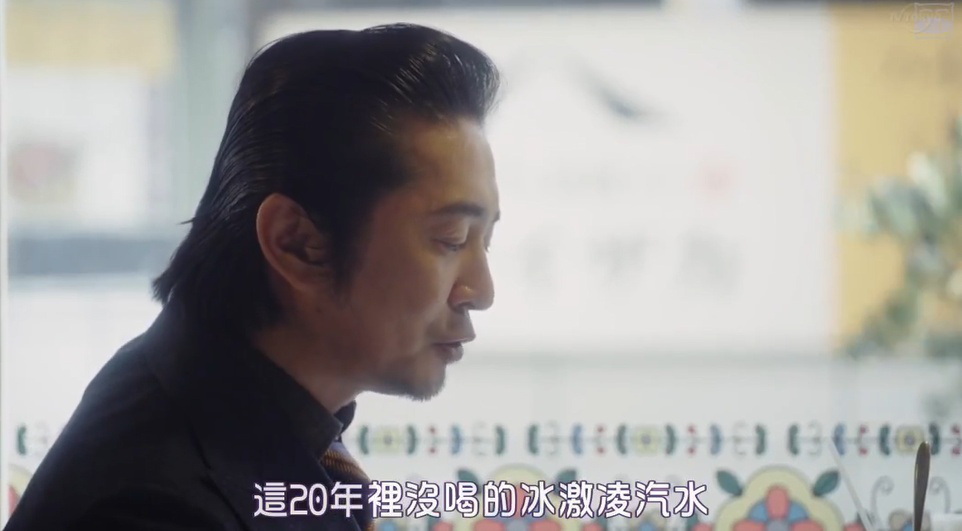
After completing this rental service, another user on Twitter wrote privately to Shota, saying that he wanted to rent him. This time, the customer was a girl.
The girl wanted Shota to spend a day with her in Tokyo. She especially wanted to visit the Tokyo Tower, because it was her last day in Tokyo. It would be too sad to go with friends and too lonely to go alone, so she thought of renting a "person who does nothing".
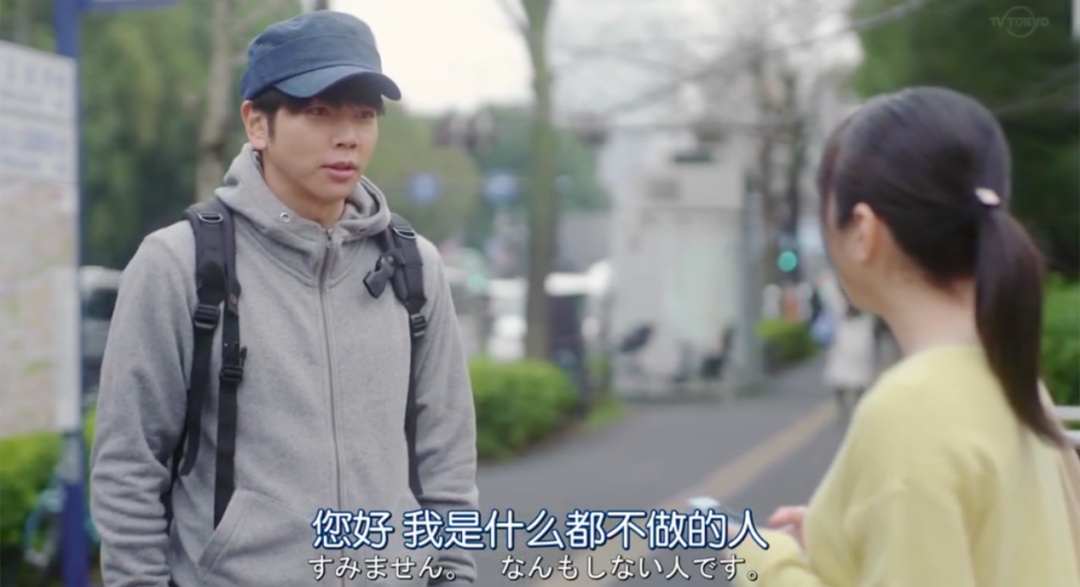
Shota accepted this project, and when they met, they seemed a little embarrassed, much like netizens rushing to the scene.
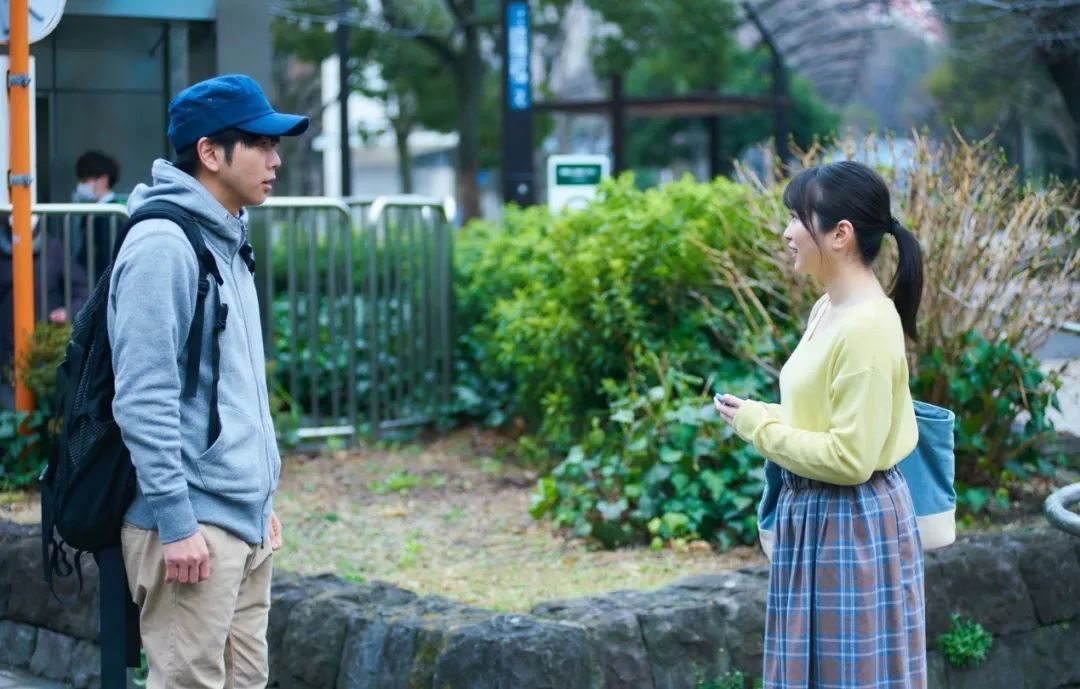
But maybe people are always more willing to open their hearts to strangers. Although Shota said little, girls gradually told their stories.
The girl named Omiya, an assistant editor, has been working alone in Tokyo for four years. I came to this city with enthusiasm, hoping to leave my mark in Tokyo. Unexpectedly, four years later, I am still a contract worker who has no right to be responsible for my own creative projects. The disheartened Omiya decided to resign and return to his hometown.
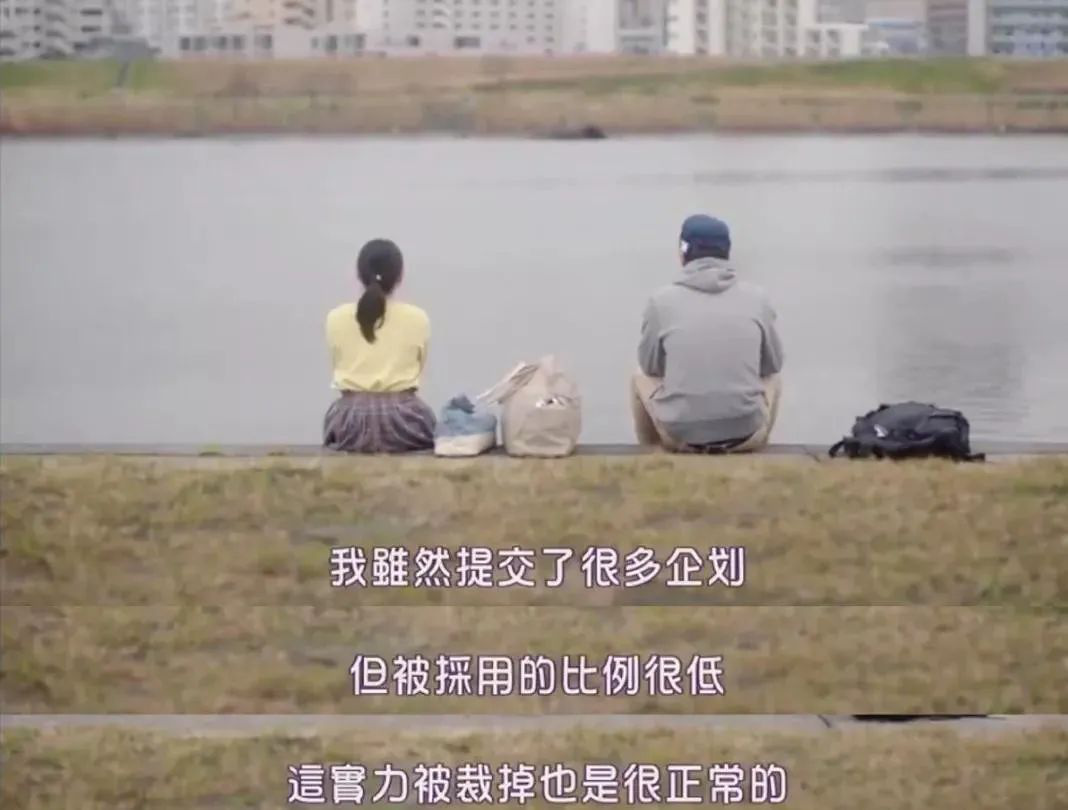
The day of visiting Shota was the last day before she left Tokyo. She wanted to see the city she had dreamed of again on the Tokyo Tower.
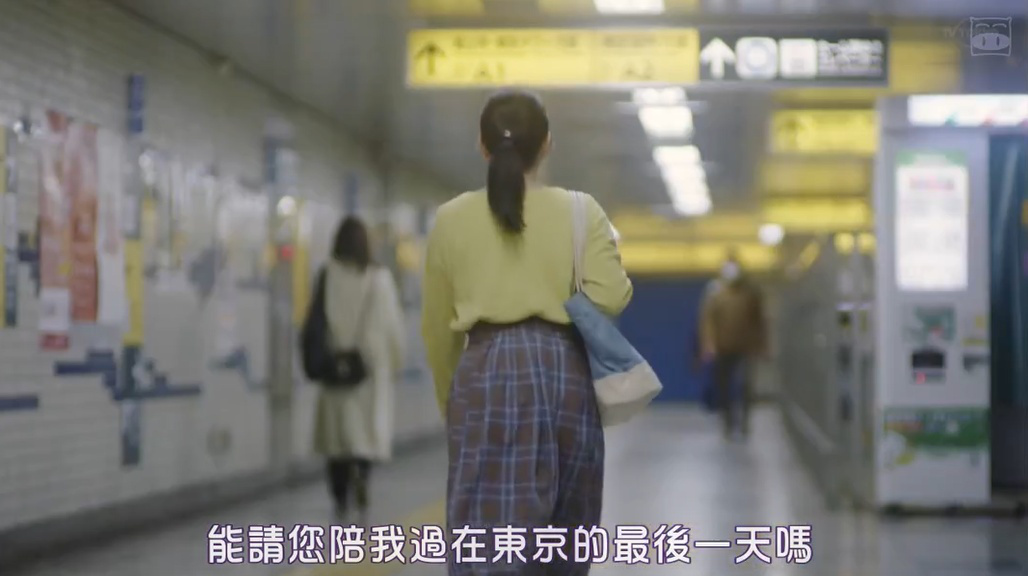
There is still nothing special about this and Shota’s last day in Tokyo, but there was an incident when he left Tokyo by train in Omiya.
After Shota’s rental service ended, she sat alone on the river bank in a daze, and the train from Omiya just passed by, so she took a picture of Shota in a daze and sent it to Twitter. Unexpectedly, this tweet caught fire unexpectedly, attracting countless people’s praise messages. At the last moment of leaving Tokyo, Omiya left its own trace.
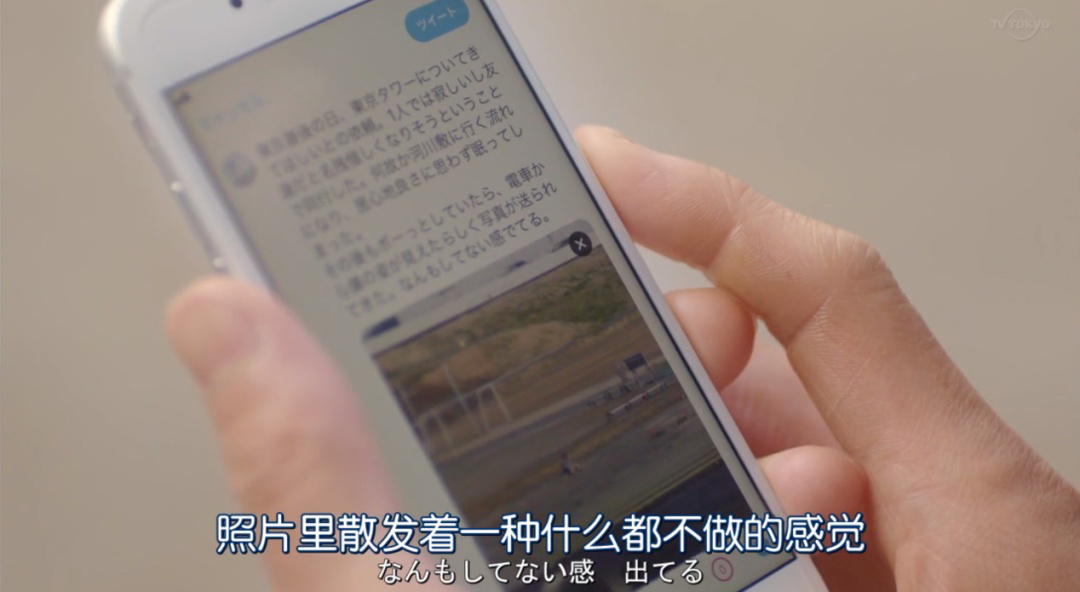
As a result of Otomiya’s Twitter, Shota suddenly became popular. More and more people came to experience the service of "renting people who do nothing", and many customers made wonderful requests …
2
Continuing the style of Japanese drama, this drama has no ups and downs and exciting scenes. Instead, it gently tells the stories of clients in the form of unit drama, just like the title of this drama "Renting People Who Do Nothing", the plot is very Buddhist and the style is very Buddhist. Of course, no one can compare with Shota, the wonderful man.
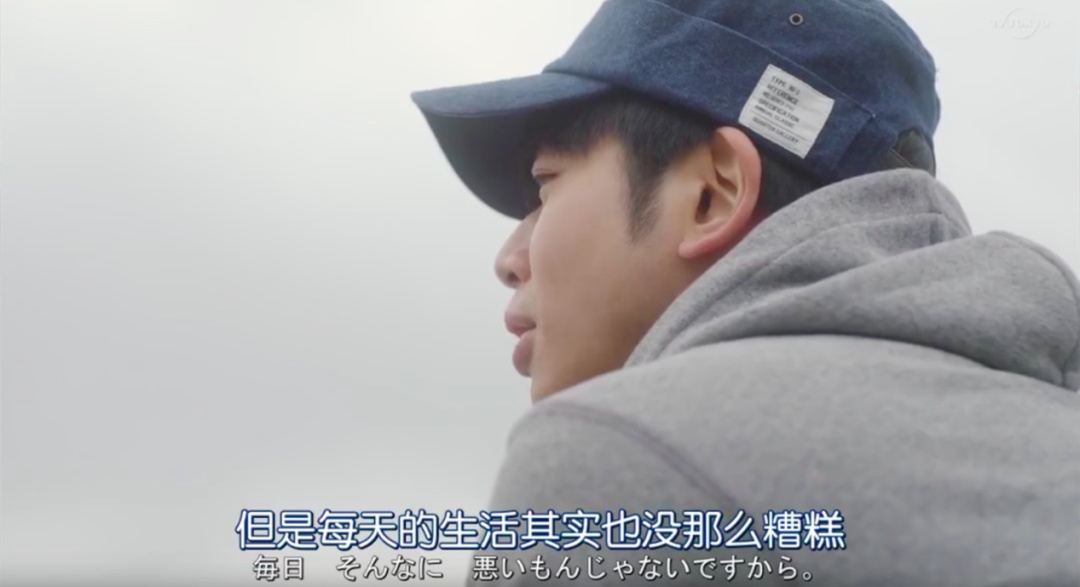
Always wearing a blue hat, gray coat, expressionless, flat tone, is the kind of passerby who will never be found in the crowd. Not only is his appearance simple, but even his dreams are quite simple.
When the client asked him what his dream was, he just said faintly: he has been doing nothing.
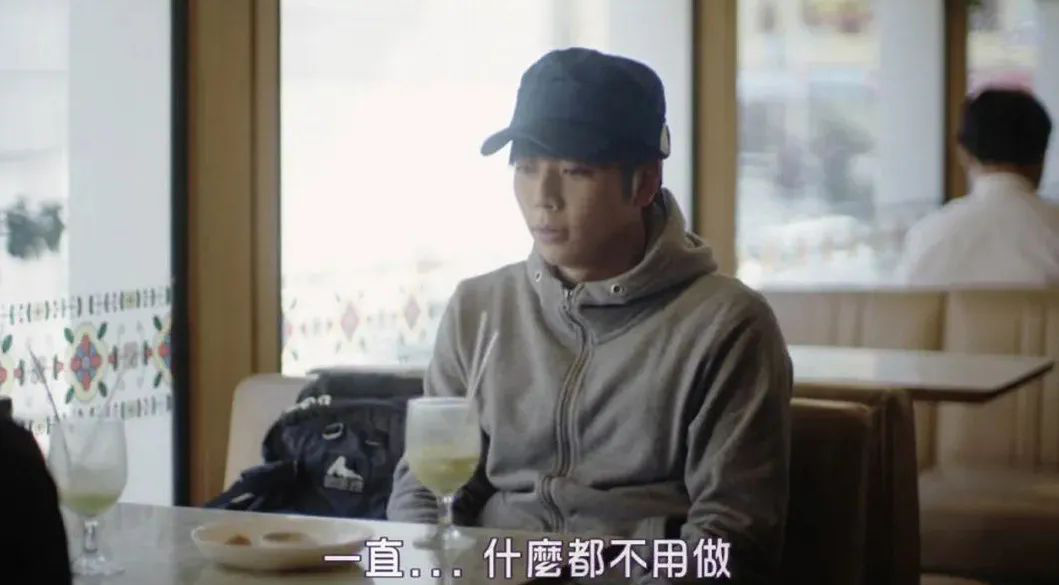
However, renting yourself out is a business in itself. How can you do nothing? Shota’s definition of "doing nothing" is also quite Buddhist, that is, it depends on his own feelings.
For example, he won’t accept the commission of running errands for others, because he thinks running errands is doing things and can’t be considered as doing nothing. Taking pictures can only be done by standing like a scarecrow, as long as you pose.
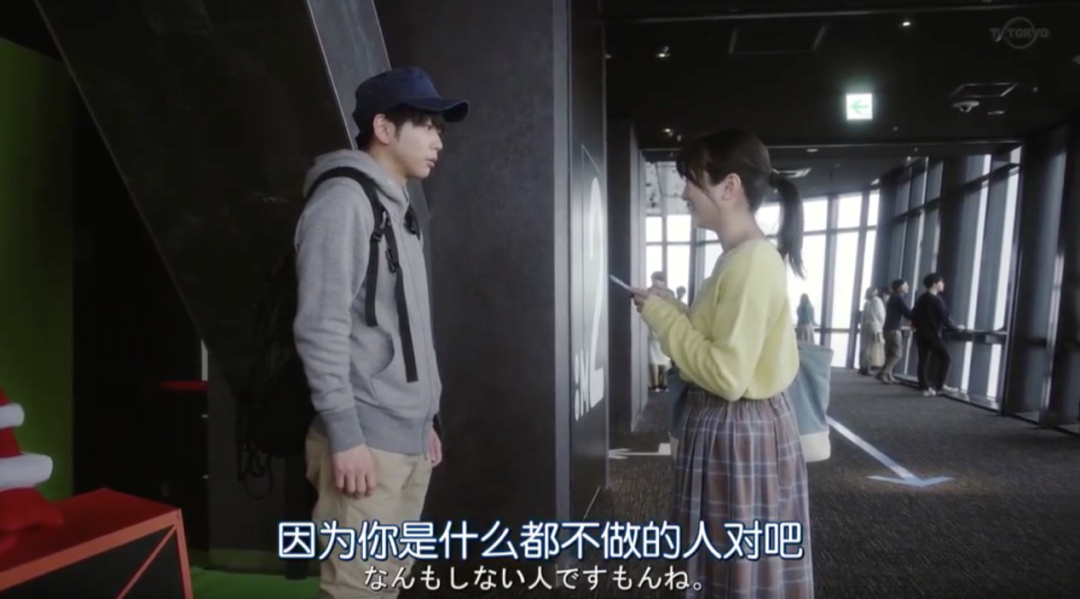
In short, he is a "salted fish" who carries out "doing nothing" by feeling, and he will not do anything that can be avoided. He is completely a negative recluse.
When he was in college, Xiang Taixue majored in seismology, but after knowing the difficulty of this major, he gave up directly and decisively.
At work, because he couldn’t adapt to the pressure in the company, he resigned directly and became unemployed.
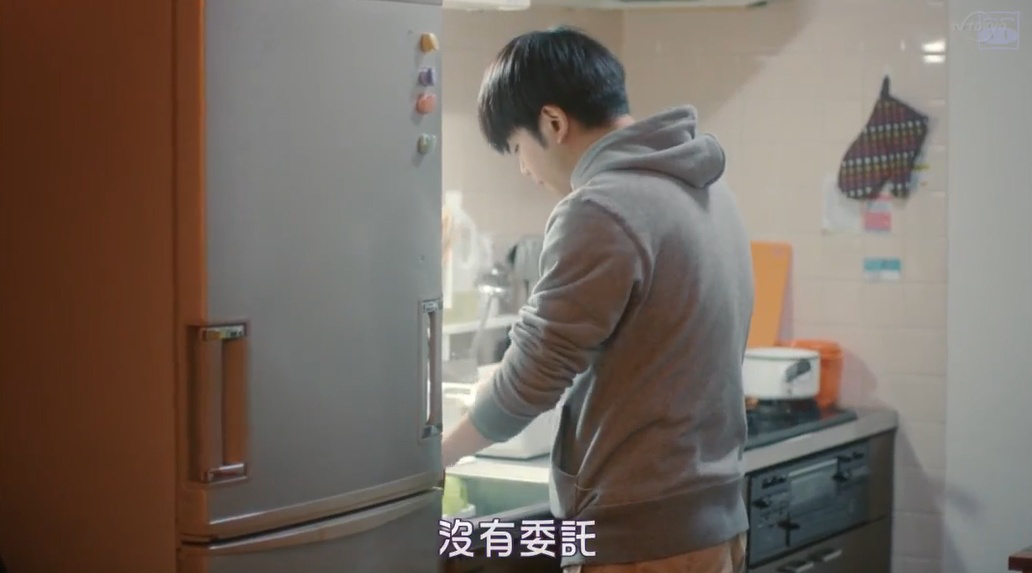
Such a man who runs away from difficulties and dreams of becoming a salted fish doesn’t seem to be consistent with the values of transmitting positive energy, but the story conveys unique warmth in such a less positive setting.
Shota’s wife, a stay-at-home housewife with a one-year-old child, fully supports the resignation of the head of the family, because her husband’s state looks much better after his resignation, so it is rare to see such an inclusive and considerate wife.
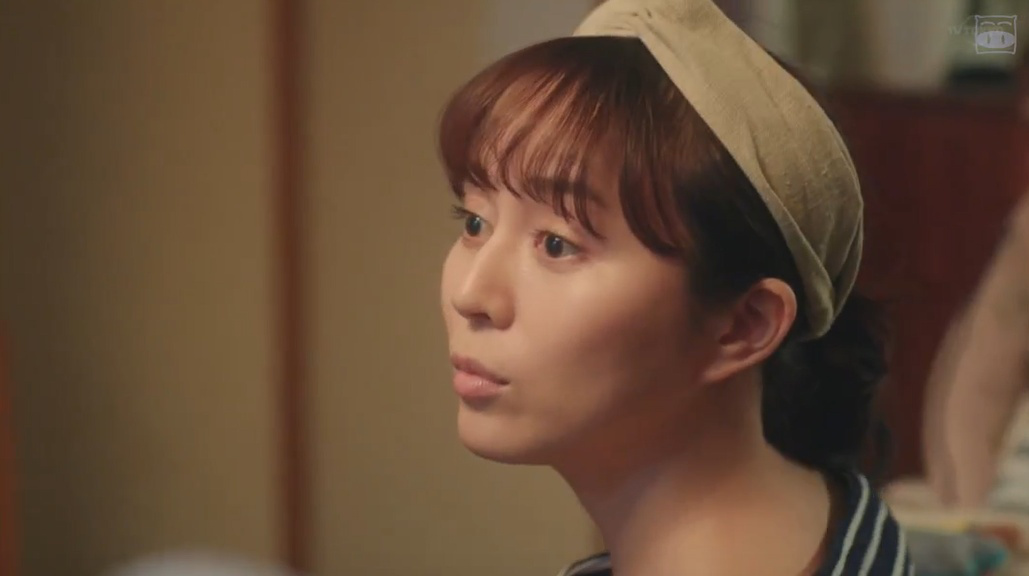
Every time Shota accepts a client’s entrustment, he also cures lonely people by doing nothing. Omiya shared his dreams and sadness on the riverside. Shota, who did nothing, was not comforted, but Omiya gradually felt the bitterness in his heart fade away in the breeze.
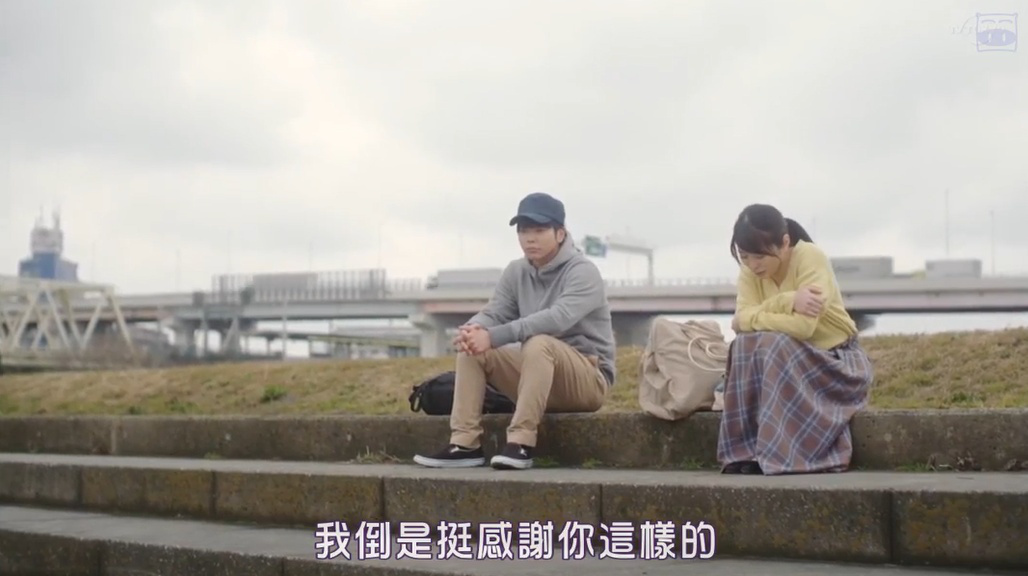
Men who are too stressed and afraid of going to work, girls who suffer from interpersonal relationships, and strong women who want to divorce … Everyone with scars has been cured because Shota has done nothing, and found his way forward in his seemingly negative Buddhist life, cooking a bowl of unique funeral chicken soup for the audience.
three
Although Shota is the only male actor in the whole play, the real protagonists of the story are all kinds of clients.
Every customer has a theme story, and each story is a true portrayal of the struggle of contemporary young people under the pressure of society. Every episode has a stab in the heart, which is simply true in the world.

Abandoned by Tokyo, the contract worker’s Grand Palace, like countless young people who went to Beishangguang to work hard, devoted their youth to the city with enthusiasm, but ultimately left no trace here.
A city resident who has worked for seven years is supposed to be a "smooth operator" who gets along well in the workplace, but he is afraid of going to work because he is out of breath by Party A and his colleagues, so he rents Shota to walk with him to work.
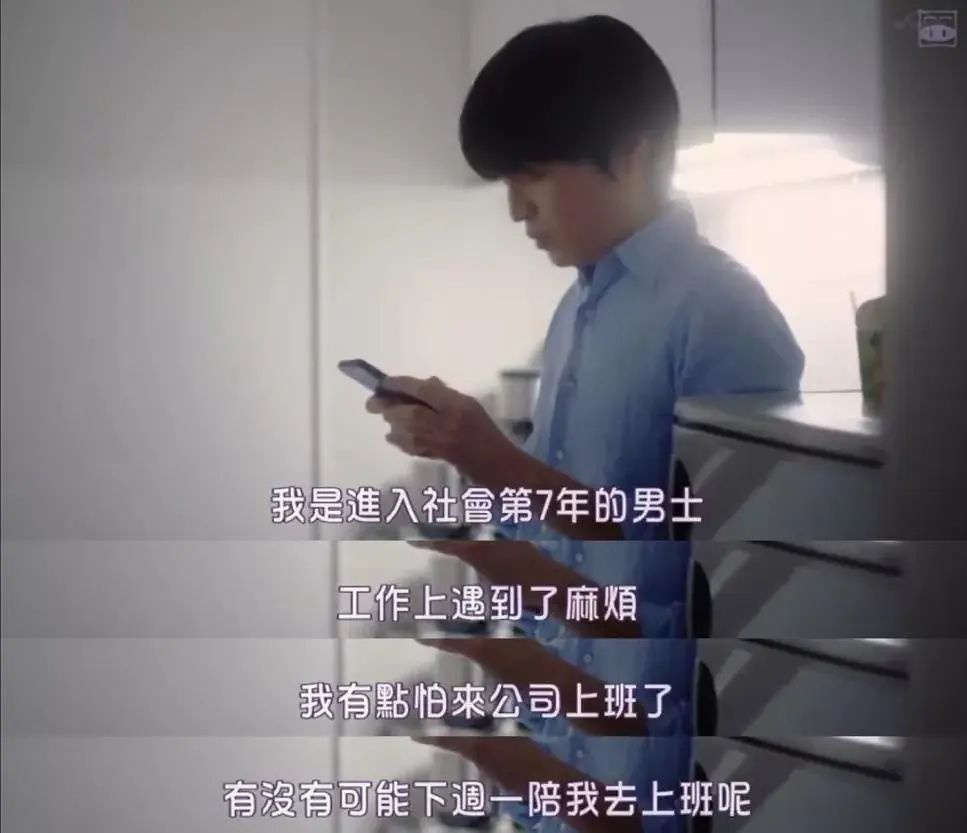
On the morning of the day of work, the city residents took heavy steps, and even because they were too afraid of stomachache on the way, they circled around the company several times, but the city residents still dared not step into the company’s door.
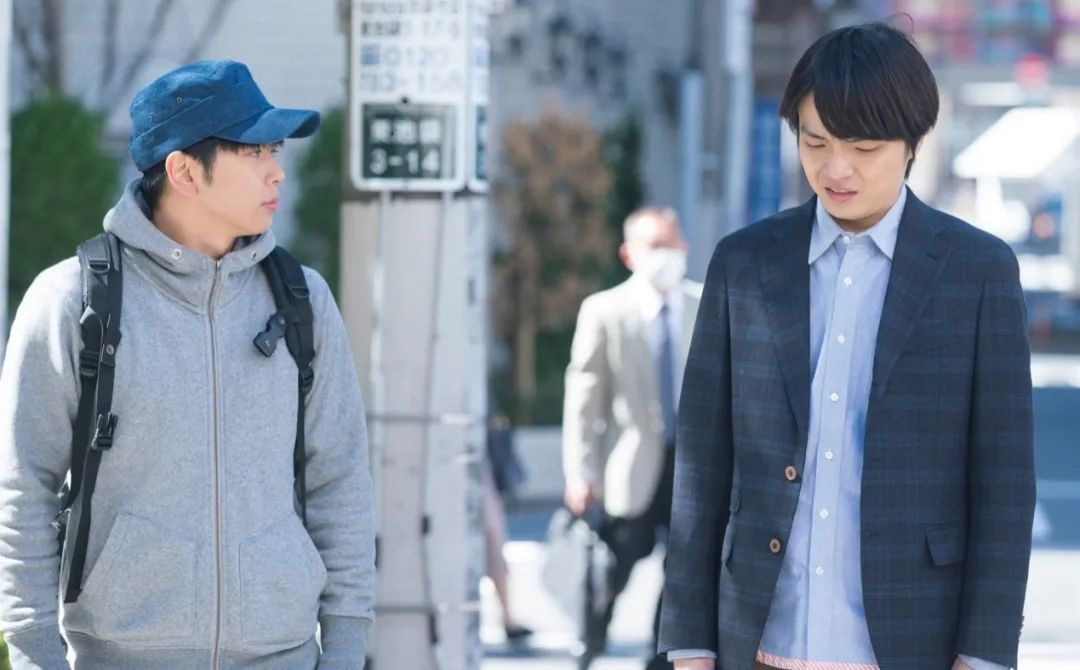
Fear, boredom and helplessness, such despair and sadness must be deeply understood by every social animal beaten by society.
There is also a customer, Shannon, who is overwhelmed by interpersonal relationships because of her "please-type" personality, although there is no pressure at work.
I made an appointment with a friend to watch a movie on her birthday, but she was pigeon-ridden the day before her birthday. Obviously, she was lost and sad, but she still smiled and said that it didn’t matter. In order not to make the other person feel guilty, she even said that she actually made an appointment with someone else.
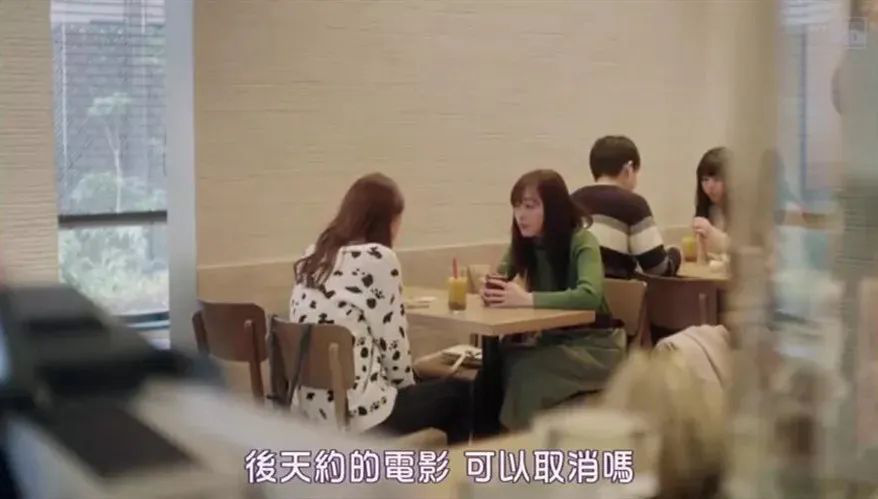
I care too much about each other’s feelings, for fear of making them feel a little embarrassed and uncomfortable. Xiangnai, who is struggling to maintain interpersonal relationships, is very tired. Even when replying to messages in the group, she has to think for a long time: if it is too perfunctory as everyone’s reply, it is completely different from everyone and seems to have no vision.
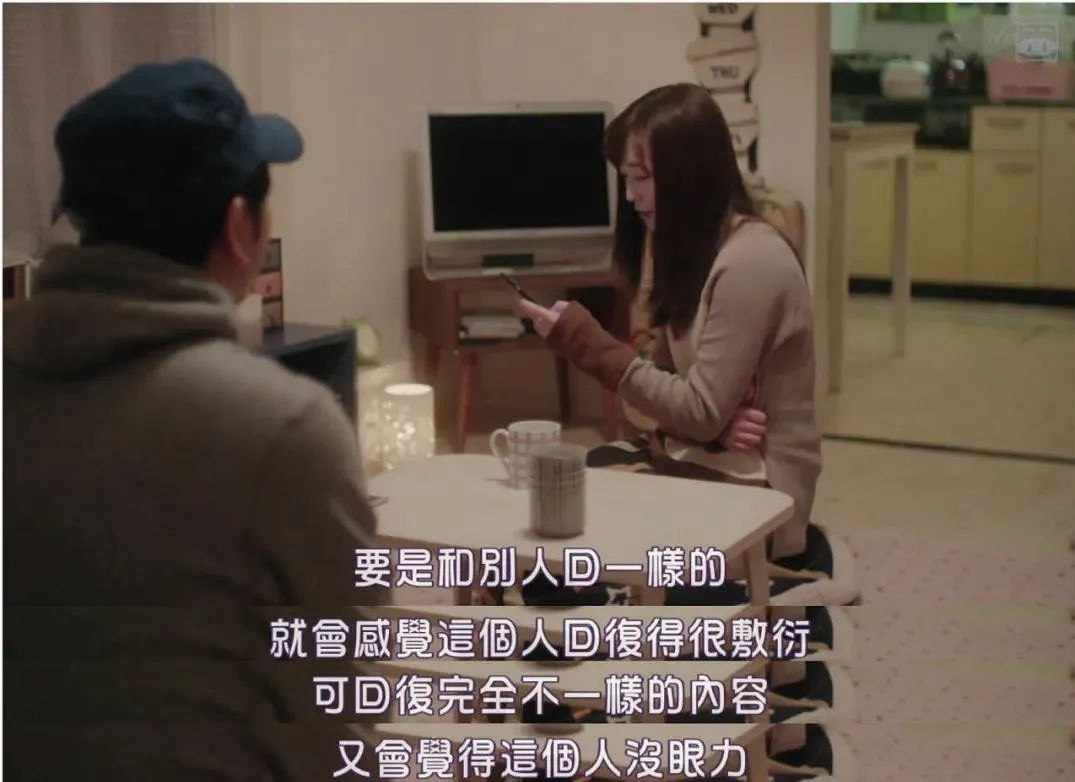
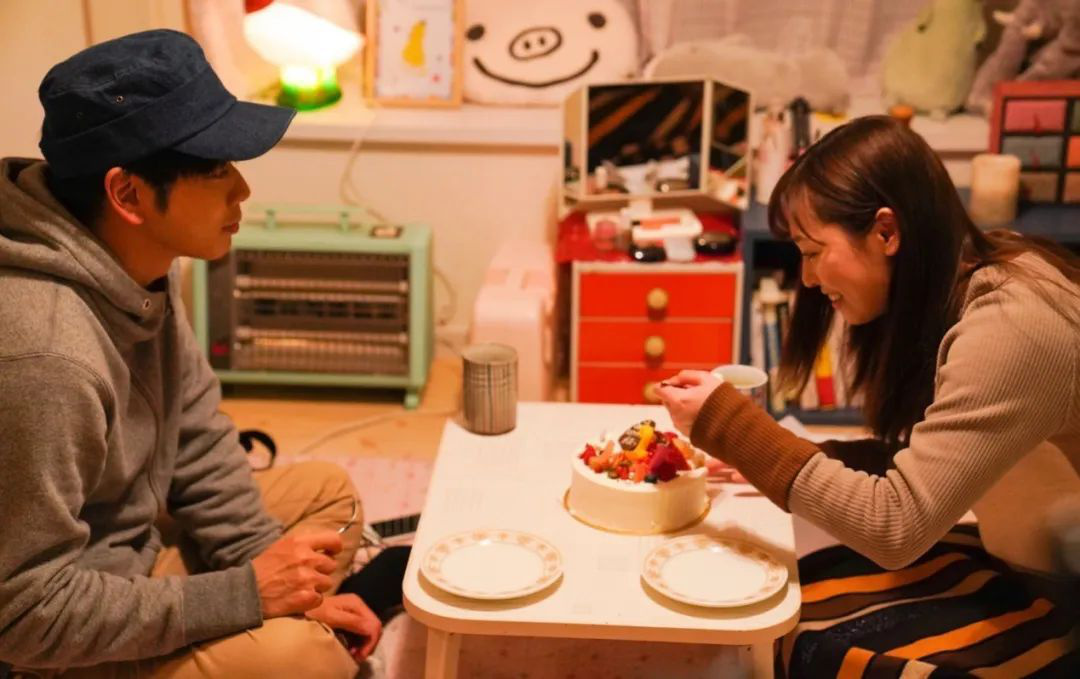
Whether it’s the big palace that has been resigned, the city dwellers who are afraid of going to work, or Xiangnai who is worried about interpersonal relationships, they are very different from Shota who "does nothing". They have pursuits and goals, and they are all striving for what they want, but they have all become "losers" in a certain sense.
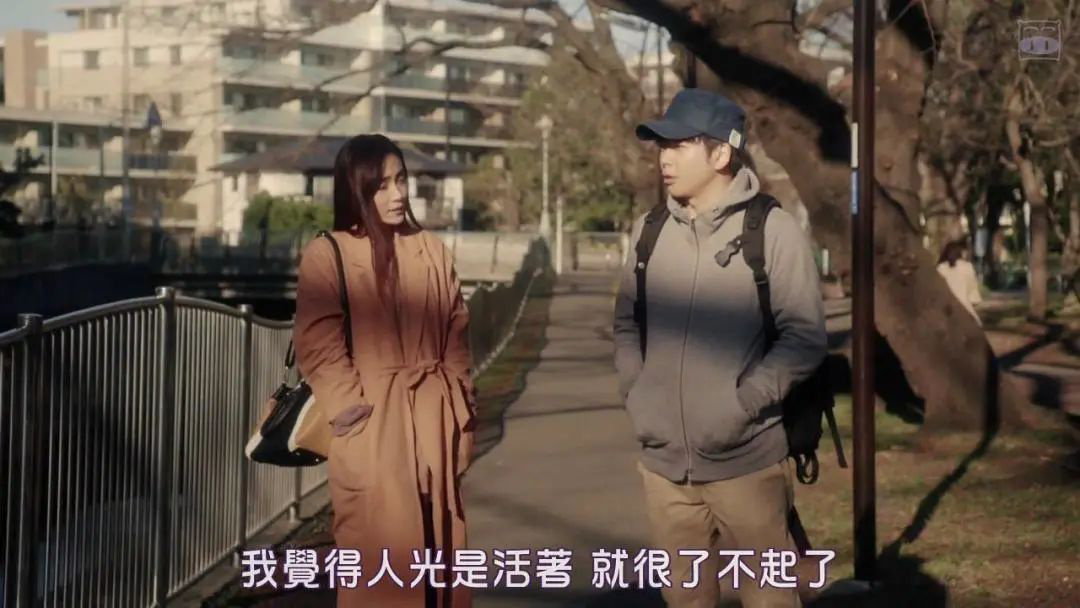
In fact, the choice is different from person to person. To what extent is the so-called failure, no dreams and no progress secular, and what are the standards of others? Isn’t a person’s greatest success that he can live himself and feel at ease?
As Shota said in the play: Although I didn’t do anything, my daily life is not so bad.
The picture in this article comes from the Internet.
@Moviebase
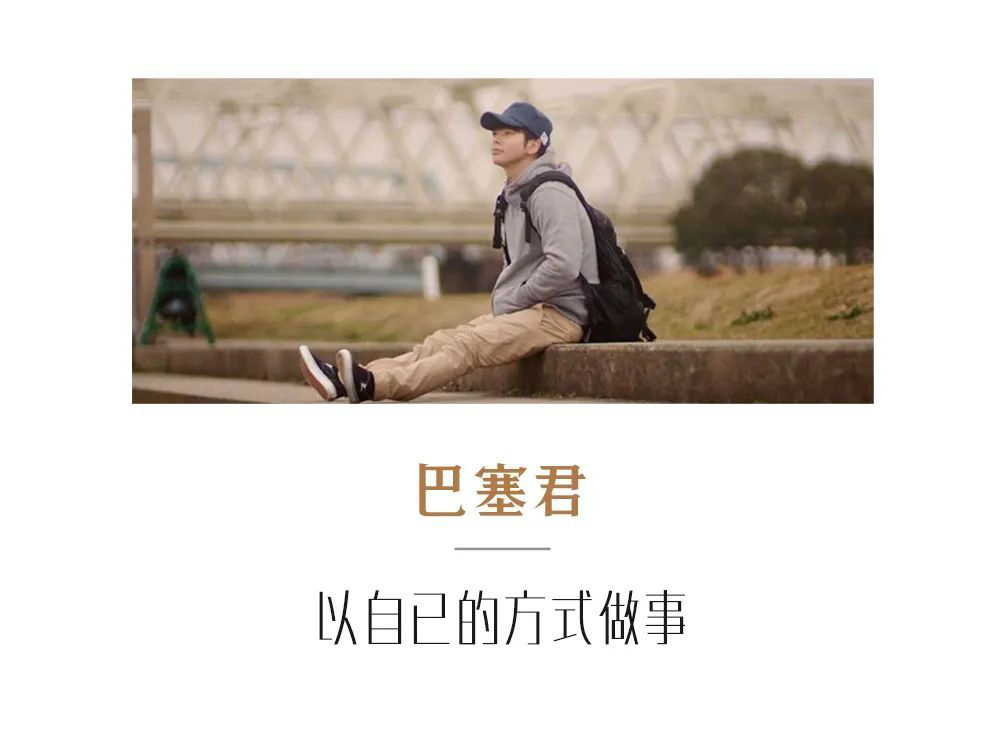
Recommend reading